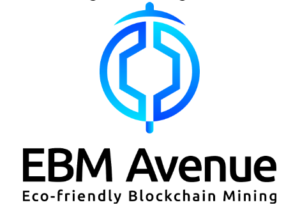Exploring Web3 Browser and Search Engines

Web3 technology has revolutionized the way we interact with the internet. This new era of the internet enables users to experience a more decentralized, secure, and user-controlled environment. Different types of Web3 browser and search engine have emerged as essential tools for exploring the decentralized web. In this article, we’ll take a closer look at what Web3 browsers and search engines are, how they work, and what advantages they offer over traditional browsers and search engines.
What is Web3?
Web3 is a term used to describe the latest iteration of the internet, which focuses on decentralization, security, and user control. Unlike Web2, which relies on centralized servers and platforms, Web3 is powered by decentralized networks such as blockchain. This makes the web more secure, private, and transparent.
Web3 technology enables the creation of decentralized applications (dApps) that are powered by blockchain, smart contracts, and decentralized storage systems. These dApps run on decentralized networks, which means they are not controlled by any central authority.
Web3 Browser
What is a Web3 Browser?
A Web3 browser is a type of web browser that is designed to interact with decentralized networks such as blockchain. It allows users to access dApps, blockchain networks, and decentralized storage systems.
Web3 browsers are built using Web3 technology, which means they can communicate directly with blockchain networks and smart contracts. This enables users to interact with blockchain-based applications and assets directly from their browsers.
How Does a Web3 Browser work?
Web3 browsers work by communicating directly with blockchain networks and decentralized storage systems. They use Web3 technology, which enables them to connect to decentralized networks and interact with smart contracts.
Web3 browsers can access dApps and blockchain networks directly, without the need for intermediaries or centralized platforms. This means that users can interact with blockchain-based applications and assets directly from their browsers.
Features of a Web3 Browser
Some of the key features of Web3 browsers include:
- Integration with blockchain networks and smart contracts
- Ability to interact with dApps and decentralized storage systems
- Enhanced security and privacy features
- Support for multiple blockchain networks and tokens
- Ability to manage and store private keys securely
Popular Web3 Browsers
Some of the popular Web3 browsers include:
- MetaMask: MetaMask is a popular Web3 browser extension that enables users to interact with decentralized applications and blockchain networks. It offers a simple and user-friendly interface, and supports a wide range of tokens and blockchain networks. MetaMask also offers enhanced security features, such as hardware wallet integration and multi-factor authentication.
- Brave: Brave is a privacy-focused Web3 browser that offers advanced security and privacy features. It blocks ads and trackers by default and offers a built-in ad blocker and anti-tracking features. Brave also includes a built-in cryptocurrency wallet, enabling users to store and manage their cryptocurrency assets.
- Opera: Opera is a Web3 browser that offers a range of features, including a built-in cryptocurrency wallet, support for multiple blockchain networks, and advanced security features. It also includes a built-in VPN, enabling users to browse the web anonymously and securely.
- Mist: Mist is a Web3 browser that is specifically designed for accessing decentralized applications and interacting with blockchain networks. It includes a built-in Ethereum wallet, enabling users to store and manage their Ethereum assets. Mist also offers advanced security features, such as multi-factor authentication and hardware wallet integration.
Web3 Search Engine
What is a Web3 Search Engine?
A Web3 search engine is a search engine that is designed to explore decentralized networks and blockchain-based applications. It enables users to search for and access decentralized applications, decentralized storage systems, and blockchain networks.
Web3 search engines work by crawling decentralized networks and indexing dApps and blockchain-based assets. They use Web3 technology to access and interact with these networks and applications, providing users with a more decentralized and secure search experience.
How Does a Web3 Search Engine Work?
Web3 search engines use Web3 technology to crawl and index decentralized networks and blockchain-based applications. They use specialized algorithms to identify and index relevant content, such as dApps and blockchain-based assets.
Web3 search engines also provide advanced search features, such as filtering by blockchain network, token, or dApp category. This enables users to find and access the content they need more quickly and easily.
Advantages of Web3 Search Engines
Web3 search engines offer several advantages over traditional search engines, including:
- Decentralization: Web3 search engines are decentralized, which means they are not controlled by any central authority. This makes them more secure and resistant to censorship.
- Privacy: Web3 search engines do not track users’ search history or personal data, providing a more private search experience.
- Access to decentralized content: Web3 search engines enable users to access decentralized applications, decentralized storage systems, and blockchain networks, which may not be available through traditional search engines.
Popular Web3 Search Engines
Some of the popular Web3 search engines include:
- Dapp.com: Dapp.com is a popular Web3 search engine that enables users to discover, explore, and interact with decentralized applications. It offers a user-friendly interface and a range of advanced search features, such as filtering by blockchain network, token, or dApp category. Dapp.com also includes a built-in wallet and portfolio tracker, enabling users to manage their cryptocurrency assets.
- State of the Dapps: State of the Dapps is a Web3 search engine that provides a comprehensive directory of decentralized applications. It offers a range of advanced search features, such as filtering by category, blockchain platform, and status. State of the Dapps also includes detailed information on each dApp, such as its development status, user reviews, and community activity.
- DappRadar: DappRadar is a popular Web3 search engine that tracks and analyzes decentralized applications across multiple blockchain platforms. It offers a range of advanced search features, such as filtering by blockchain network, token, or category. DappRadar also provides detailed information on each dApp, including its user base, transaction volume, and developer activity.
- Blockspot.io: Blockspot.io is a Web3 search engine that enables users to search for and discover blockchain-based assets and applications. It offers a range of advanced search features, such as filtering by category, blockchain platform, and token. Blockspot.io also includes a news section that provides updates on the latest developments in the blockchain and cryptocurrency space.
How to Use Web3 Browser and Search Engines

To use a Web3 browser or search engine, you first need to download and install it on your device. Once installed, you can use it like any other browser or search engine.
To access dApps or blockchain-based assets using a Web3 browser, you need to have a compatible wallet installed on your device. This wallet will enable you to manage your cryptocurrency assets and interact with smart contracts.
To use a Web3 search engine, simply enter your search query and filter the results as needed.
Security Considerations for Web3 Browsers and Search Engines
While Web3 browsers and search engines offer enhanced security features compared to traditional browsers and search engines, it is still important to take precautions to protect your assets and data. Here are a few tips to keep in mind:
- Use a reputable Web3 browser or search engine: Stick to well-known and reputable Web3 browsers and search engines to reduce the risk of security issues.
- Keep your wallet secure: If you’re using a Web3 browser to access dApps or blockchain-based assets, make sure your wallet is secure and that you don’t share your private keys with anyone.
- Stay up to date: Keep your Web3 browser and search engine up to date with the latest security patches and updates.
- Be careful with links: Be cautious when clicking on links, as phishing attacks are a common way for attackers to steal cryptocurrency or access sensitive data.
Using Web3 Browsers and Search Engines for Decentralized Applications
One of the primary use cases for Web3 browsers and search engines is accessing decentralized applications (dApps). These applications are built on top of blockchain technology and run on decentralized networks, making them more secure, transparent, and resistant to censorship.
To use a dApp with a Web3 browser, you’ll typically need to have a compatible wallet installed on your device. This wallet will enable you to manage your cryptocurrency assets and interact with smart contracts.
When using a dApp, it’s important to be aware of the gas fees associated with each transaction. These fees are paid in cryptocurrency and can vary depending on network congestion and other factors.
Conclusion
Web3 technology represents a significant evolution in the way we interact with the internet. Web3 browsers and search engines are essential tools for exploring the decentralized web, enabling users to access dApps, blockchain networks, and decentralized storage systems.
By using Web3 browsers and search engines, users can enjoy a more secure, private, and decentralized web experience. As Web3 technology continues to evolve, we can expect to see even more exciting developments in this space.
FAQs
- What is the difference between a Web3 browser and a traditional browser?
- A Web3 browser is designed to interact with decentralized networks such as blockchain, while traditional browsers rely on centralized servers and platforms.
- How do Web3 search engines index decentralized content?
- Web3 search engines use specialized algorithms to crawl and index decentralized networks and blockchain-based applications.
- Are Web3 browsers and search engines more secure than traditional browsers and search engines?
- Web3 browsers and search engines offer enhanced security features, such as integration with blockchain networks and smart contracts, making them more secure than traditional browsers and search engines.
- Can Web3 search engines be used to access traditional web content?
- Yes, Web3 search engines can also be used to search for traditional web content, but their primary focus is on decentralized content.
- Is Web3 technology only relevant for cryptocurrency users?
- Web3 technology has many potential applications beyond cryptocurrency, including decentralized storage, identity management, and more.

I have been in the industry for over 5 years. I know all the latest news and what is going on with different coins. I write about Bitcoin, Ethereum, Litecoin, and more.





